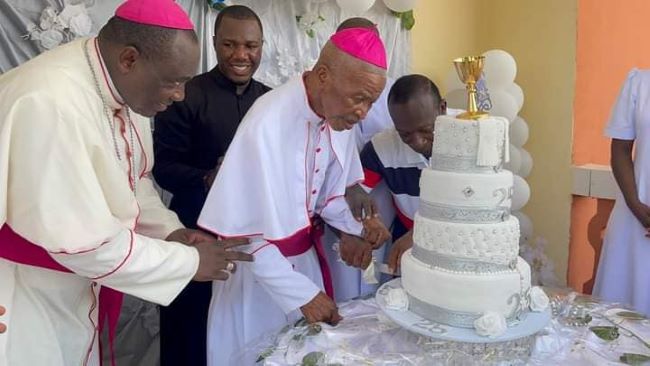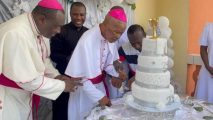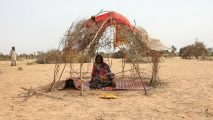Categories
Archives
- April 2024
- March 2024
- February 2024
- January 2024
- December 2023
- November 2023
- October 2023
- September 2023
- August 2023
- July 2023
- June 2023
- May 2023
- April 2023
- March 2023
- February 2023
- January 2023
- December 2022
- November 2022
- October 2022
- September 2022
- August 2022
- July 2022
- June 2022
- May 2022
- April 2022
- March 2022
- February 2022
- January 2022
- December 2021
- November 2021
- October 2021
- September 2021
- August 2021
- July 2021
- June 2021
- May 2021
- April 2021
- March 2021
- February 2021
- January 2021
- December 2020
- November 2020
- October 2020
- September 2020
- August 2020
- July 2020
- June 2020
- May 2020
- April 2020
- March 2020
- February 2020
- January 2020
- December 2019
- November 2019
- October 2019
- September 2019
- August 2019
- July 2019
- June 2019
- May 2019
- April 2019
- March 2019
- February 2019
- January 2019
- December 2018
- November 2018
- October 2018
- September 2018
- August 2018
- July 2018
- June 2018
- May 2018
- April 2018
- March 2018
- February 2018
- January 2018
- December 2017
- November 2017
- October 2017
- September 2017
- August 2017
- July 2017
- June 2017
- May 2017
- April 2017
- March 2017
- February 2017
- January 2017
- December 2016
- November 2016
- October 2016
- September 2016
- August 2016
- July 2016
- June 2016
Featured
 Bishop Francis T. Lysinge @ 25!
Bishop Francis T. Lysinge @ 25!  Understanding the Biya Francophone regime’s support for the Israeli genocide in Gaza
Understanding the Biya Francophone regime’s support for the Israeli genocide in Gaza  Poverty under Biya: Cameroonians embrace Chinese language for brighter futures
Poverty under Biya: Cameroonians embrace Chinese language for brighter futures  Cameroon is broken: Who can fix it?
Cameroon is broken: Who can fix it?  Ethiopia: U.S Senator Cardin Statement on the Killing of Bate Urgessa
Ethiopia: U.S Senator Cardin Statement on the Killing of Bate Urgessa
Most Commented Posts
 4 Anglophone detainees killed in Yaounde
4 Anglophone detainees killed in Yaounde
19 comments Chantal Biya says she will return to Cameroon if General Ivo Yenwo, Martin Belinga Eboutou and Ferdinand Ngoh Ngoh are sacked
Chantal Biya says she will return to Cameroon if General Ivo Yenwo, Martin Belinga Eboutou and Ferdinand Ngoh Ngoh are sacked
13 comments Anglophone Nationalism: Barrister Eyambe says “hidden plans are at work”
Anglophone Nationalism: Barrister Eyambe says “hidden plans are at work”
12 comments The Anglophone Problem – When Facts don’t Lie
The Anglophone Problem – When Facts don’t Lie
12 comments Largest wave of arrest by BIR in Bamenda
Largest wave of arrest by BIR in Bamenda
10 comments
Latest Tweets
Featured
-

Bishop Francis T. Lysinge @ 25!
-

10 Million Cameroonians lived on less than $1.80 per day
-

Football: Xavi to remain as Barcelona coach
-

Biya regime delays bond sale amid regional market strain
-

Historic agreement between Nigeria and Cameroon to tackle wildlife crime
-

Southern Cameroons refugees in Nigeria receive farm seedlings
-

Douala: Investment Forum wraps up with honors for investment champions
© Cameroon Concord News 2024
1, January 2020
2019 in Africa: pro-democracy uprisings, regime change and terrorism in the Sahel 0
From Felix Tshisekedi’s rise to power in the Democratic Republic of Congo to the fall of Abdelaziz Bouteflika in Algeria and the acquittal of former Ivorian president Laurent Gbagbo, Africa was rocked by seminal change throughout 2019. FRANCE 24 takes a look.
For pro-democracy protesters, 2019 got off to an auspicious start. Political change would sweep the continent throughout the year, particularly in the Democratic Republic of the Congo, where an electoral battle for the country’s leadership proved a harbinger of the winds of change.
Felix Tshisekedi succeeds Joseph Kabila in DR Congo
On January 19, after a controversial election, Felix Tshisekedi, son of longtime opposition leader Etienne Tshisekedi, was proclaimed the DR Congo’s new president with 38.57% of the vote.
Runner-up Emmanuel Ramazani Shadary came third in the poll, while incumbent Joseph Kabila was forced to give up his seat after 18 years in power. But the results were met with widespread scepticism by the international community and were contested by the Catholic Church, which announced that the real winner was in fact opponent Martin Fayulu, who polled second.
International Criminal Court acquits Laurent Gbagbo
After being held for nearly seven years at the International Criminal Court detention centre for crimes against humanity committed during the 2010-2011 post-election crisis, former Ivorian president Laurent Gbagbo and his youth minister Charles Blé Goudé were acquitted in January of all charges against them.
Few saw the explosive verdict coming in a three-year-long trial.
The International Criminal Court initially ordered their immediate release. But prosecutor Fatou Bensouda appealed against the judgement on procedural grounds. The former Ivorian president is currently on parole in Belgium, awaiting news of a possible appeal. Blé Goudé remains in the Netherlands under similar conditions.
A year of revolution in Algeria
In Algeria, the popular protest movement, known as the Hirak, shows little sign of waning despite the election of a new president, Abdelmadjid Tebboune, on December 12.
The Hirak continues to draw thousands of people onto the streets of Algiers, and several other major cities in the country, every Friday. It began spontaneously on February 16, sparked by an announcement that then president Abdelaziz Bouteflika, who had been in power for 20 years, was planning to run for a fifth term despite his poor health.
Under pressure from the street, Bouteflika, whose public appearances were becoming increasingly rare, finally resigned on April 2. But this did nothing to assuage protesters who continued to call for the removal of an entire governing elite that they considered nepotistic and corrupt. The protest movement eventually forced the arrest of several of the regime’s leaders, including Said Bouteflika, brother of the deposed president.
Overthrow of Omar al-Bashir in Sudan
Sudan’s aggrieved citizens looked to Algeria for inspiration for their own pro-democracy movement. Last December, a first rally was held to protest against the rising cost of bread and petrol. Soon after, thousands more took to the streets of Khartoum, and several other Sudanese cities, to demonstrate against inflation and demand better living conditions.
They railed against their leader and longtime autocrat Omar al-Bashir, who had ruled the country for 30 years. The vast protest movement continued unabated even though the Sudanese president was deposed by the army in April. More than 250 people were killed in clashes between protesters and the military.
After bitter negotiations between the political opposition, civil society and the military, a Sovereign Transitional Council was formed. On August 15, Abdalla Hamdok, a former senior UN official, was appointed prime minister to head up the country’s transitional government for the next three years, until elections can be held.
Terrorism in the Sahel
The Sahel witnessed the continuing scourge of terrorism throughout 2019. In northern Mali, jihadist groups affiliated to the Islamic State group attacked several military bases in Niger and Burkina Faso, despite the presence of French troops from France’s anti-terrorist Barkhane force, and the joint forces of the G5 Sahel.
The December attack against the Inates military base in Niger killed 71 soldiers, following an earlier attack on the Indelimane camp in mid-November, which left more than 50 dead. Nearly 1,500 civilians have been killed in terrorist attacks since January, according to the UN.
Several countries on the frontlines of the fight against terrorism in the Sahel pleaded for more support from the international community. French President Emmanuel Macron responded by organising a summit on January 13 in Pau in southwestern France to meet with regional leaders to reassess France’s military engagement in the region.
Nobel Peace Prize awarded to Ethiopian Prime Minister Abiy Ahmed
When Ethiopia’s newly elected prime minister, 43-year-old Abiy Ahmed, came to power in April, he wasted no time in asserting his progressive agenda in a country marked by social injustice and lack of freedoms.
In October, his parliament elected a woman, Sahle-Work Zewde, as head of state for the first time. A few days earlier, he demonstrated his commitment to gender parity by appointing ten men and ten women to his cabinet.
But it was his rapprochement with Eritrea that earned him the Nobel Peace Prize. In July, Ahmed signed a joint declaration of peace and cooperation with Eritrean President Isaias Afwerki, ending 20 years of war in which 80,000 people were killed.
Death of Tunisian President Béji Caïd Essebsi
Tunisia’s first freely elected president, Béji Caïd Essebsi died at the age of 92, just a few months before presidential elections originally scheduled for November. A symbol of Tunisia’s post-Arab spring, he was first appointed prime minister of a provisional government in February 2011 after the fall of former president Zine el-Abidine Ben Ali, and was tasked with preparing a new constitution in the wake of the nation’s pro-democracy uprisings.
Nine months later, he left office to found his Nidaa Tounes party, with which he won the presidential election in 2014 at the age of 88.
The end of the CFA franc
On a visit to Ivory Coast’s economic capital of Abidjan on December 21, President Emmanuel Macron and Ivorian President Alassane Ouattara announced the launch of the “Eco”, a revamped common currency that replaces the CFA in West Africa. The new single currency will be introduced across ECOWAS (Economic Community of West African States) in 2020.
The CFA franc was created by France in 1945, then a colonial power, and was seen by its detractors as a lingering symbol of colonialism almost 60 years after independence had been declared in the former French colonies.
The currency, shared by 14 West and Central African countries, had crystallised tensions and divided public opinion among Africans. Anti-CFA economists believed that the currency kept Africa underdeveloped through its fixed parity mechanism with the euro, guaranteed by France. In return, France required African countries to pay about 50 per cent of their foreign exchange reserves to the French Treasury.
But for others, the CFA franc was seen as a guarantee of economic stability. Ouattara sought to reassure ECOWAS, saying that the new currency will remain pegged to the euro, thereby guaranteeing its stability.
Source: France 24